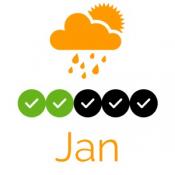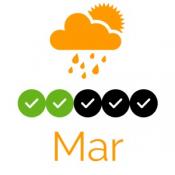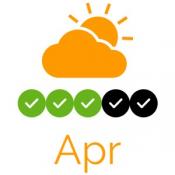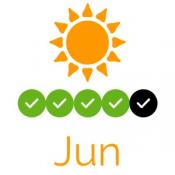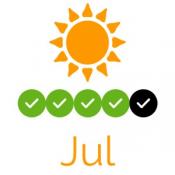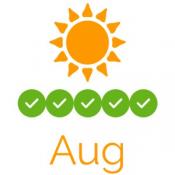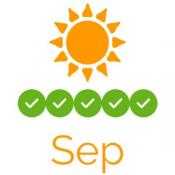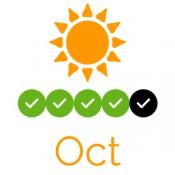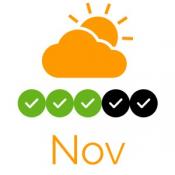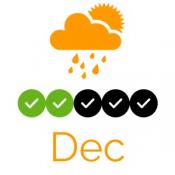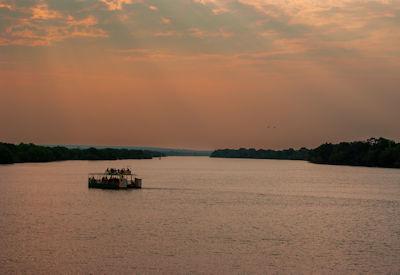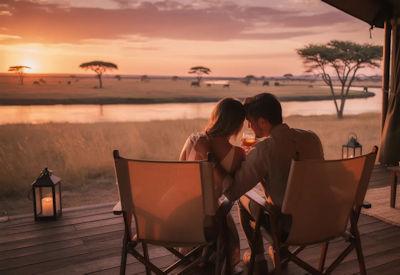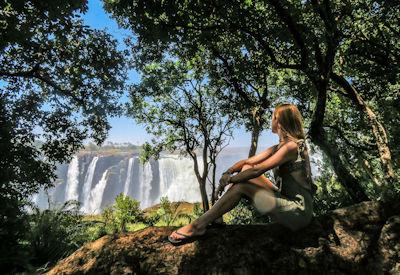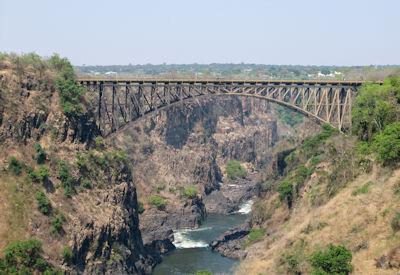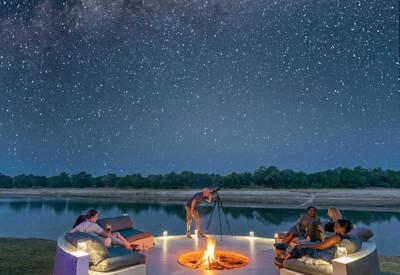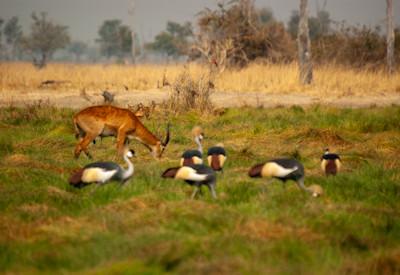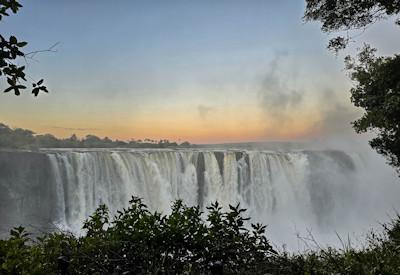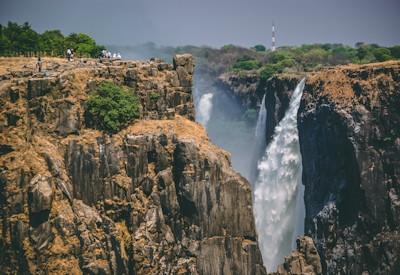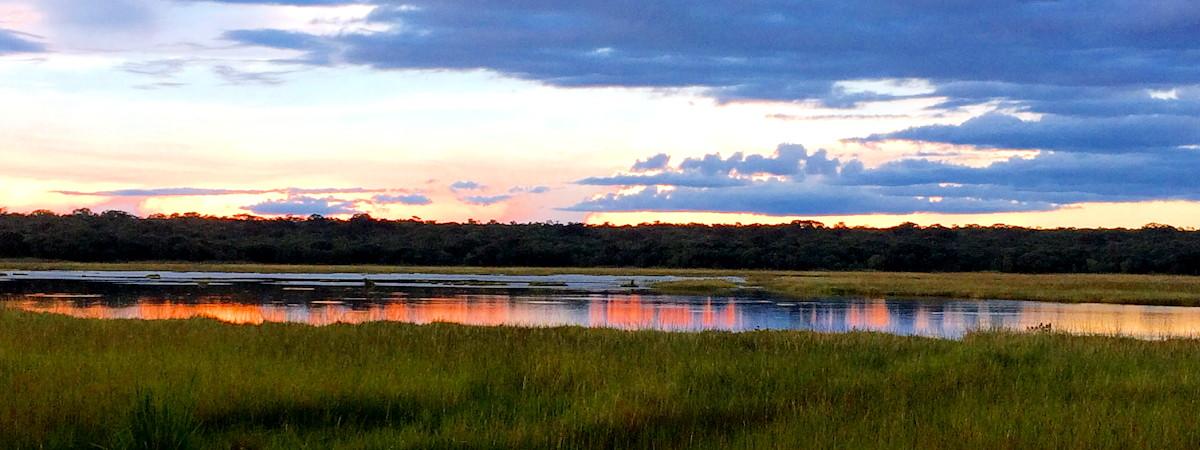
Although small in size compared to other Zambian national parks, it is around 450 km² in total size. Kasanka offers guests a wide range of ecosystems, including rivers, lakes, wetlands, forests, lagoons, meadows and dambos that all support an abundance of birds, fish and a few plains game species.
- Size: 450 square kilometres
- Location: Central Zambia
- Rainfall: Summer
- Lodges & accommodation: See Kasanka Bat Safari
Where is Kasanka National Park located?
Kasanka National Park is found pretty much in the middle of Zambia, around 525 kilometres north of Lusaka.
Google Maps does not show the national park as such, so we are using 'HERE WeGo maps' for a more accurate location of the park's boundaries: HERE WeGo Maps - Kasanka National Park
Zoom in and out of the above map to get a general idea of where it is located and what surrounds it.
Information On Kasanka National Park
The main attraction and activity for visiting Kasanka is the annual bat migration. Between November and December, millions and millions of Fruit Bats migrate to this region of Zambia. A truly spectacular sight awaits, with the bat migration being on the bucket list of many people around the world (those in the know, of course).
The national park supports a small list of mammal species that one has the chance to spot and photograph, and they include; Elephant, Hippo, Sable Antelope, Liechtenstein's Hartebeest, Puku, Sitatunga, Reedbuck, Waterbuck, Sharpe's Grysbok and the rare Blue Monkey. Predators are very seldom seen in Kasanka.
Birdlife in the summer months is rather good, with over 330 bird species having been recorded, including Pel's Fishing Owl, Pygmy Goose, Ross's Loerie, Osprey, Wattled Crane, and if you are exceptionally lucky, the rare Shoebill Stork.
Best Time to Visit Kasanka National Park?
Kasanka is open year-round for visitors, although it must be noted that during the summer months (the rainy season), certain areas of the park are inaccessible due to flooding.
The best time for the bat migration is between November and December, while the best months for birding is the wet summer season (November - April), when all the migratory species have arrived.
Please note that one has to book in advance should one be interested in the annual bat migration. Please contact us as soon as possible.
Main Attractions Of Kasanka National Park
- Bats, bats and more Bats
- Birdlife photography
- Rare antelope species
- The occasional elephant sightings are truly special
10 Must See Attractions in Livingstone
Located in the heart of Africa, Livingstone is a beacon of adventure and culture. Here, the mighty Zambezi River plunges into the awe-inspiring Victoria Falls, creating a world of wonder and excitement for travellers. Our latest blog post, "10 Must-See Attractions in Livingstone," guides you through this breathtaking region, showcasing the very best experiences it has to offer.
This guide takes you to a place where nature's beauty meets vibrant cultures and thrilling adventures. Whether you're drawn to the wild or inspired by local traditions, Livingstone is the perfect backdrop for your African dreams. Join us as we explore the top 10 attractions that make Livingstone a destination full of discovery and wonder.
The Perfect Zambia Honeymoon Safari
Embark on a journey where the wild heart of Africa meets your newlywed bliss. Our latest blog, "The Perfect Zambia Honeymoon Safari," explores one of the world's most secluded and stunning safari destinations. With untouched landscapes and incredible wildlife, Zambia is the perfect place for couples to create unforgettable memories of adventure, romance, and natural beauty.
In this post, we delve into the heart of Zambia's majestic wilderness to uncover why it's the perfect destination for couples seeking an unforgettable journey. From the gentle flow of the Zambezi River to the thunderous spray of Victoria Falls and the remote bush where stars light up the night sky, Zambia sets the stage for an epic romance.
5 Best Lodges in Livingstone
Embarking on a journey to discover the heart of Zambia, our latest blog series dives into the enchanting city of Livingstone, a gateway to the majestic Victoria Falls and a hub for adventurers seeking the thrill of Africa's wilderness. In this series, we meticulously explore the "5 Best Lodges in Livingstone," offering you a guide to unparalleled comfort amidst nature's splendour.
Each lodge in Livingstone has been selected based on its unique charm, exceptional service, and proximity to Livingstone's captivating attractions, ensuring your stay is nothing short of extraordinary. From family-friendly accommodations to romantic hideaways, our guide is your first step towards planning an unforgettable getaway in Livingstone.
10 Reasons To Visit Livingstone
Nestled on the border of Zimbabwe and Zambia, Livingstone is a treasure trove of natural beauty, adrenaline-pumping adventures, and rich cultural experiences that beckon travellers from around the globe. It's not just a destination; it's the gateway to exploring the majestic Victoria Falls, known locally as Mosi-oa-Tunya or "The Smoke That Thunders."
This awe-inspiring wonder of the world serves as the perfect backdrop for what promises to be an unforgettable journey. As you delve into our latest blog, "10 Reasons to Visit Livingstone," prepare to be captivated by a land where nature's power is matched only by its beauty, and every experience is steeped in wonder.
10 Best Lodges in Zambia
Embark on an unforgettable journey through the heart of Africa as we unveil the 10 best lodges in Zambia, each offering a perfect blend of opulence and adventure. Known for its breathtaking landscapes and rich wildlife, Zambia is home to some of the world's most exquisite safari lodges.
From the majestic Victoria Falls to the serene Zambezi River, each lodge provides a unique gateway to Zambia's natural wonders. Picture yourself waking up to the sounds of the wild, enjoying world-class amenities, and engaging in thrilling activities like game drives, walking safaris and canoeing safaris.
10 Reasons to Visit the Luangwa National Park
If you're dreaming of an unforgettable safari adventure, look no further than Zambia's stunning South Luangwa National Park. Known for its incredible wildlife, breathtaking landscapes, and unique safari experiences, this Zambian gem offers something for everyone.
From walking safaris to birdwatching, here are 10 compelling reasons to visit Luangwa National Park and immerse yourself in the heart of Africa's wilderness. Whether you're an avid wildlife enthusiast, a photography buff, or simply looking for an unforgettable safari, Luangwa National Park has something to offer for everyone.
Zambia Travel Bucket List
Are you dreaming of an unforgettable adventure in Africa? Look no further than Zambia! This travel bucket list covers the top must-see destinations and experiences, from the majestic Victoria Falls to thrilling safaris and vibrant cultural festivals.
Whether you're an adrenaline junkie, a wildlife enthusiast, or a culture lover, Zambia offers a diverse array of activities and sights that cater to every type of traveller. Get ready to explore vast landscapes, immerse yourself in local traditions, and enjoy unique wildlife encounters that will leave you with memories to last a lifetime.
Devil's Pool Victoria Falls
Nestled precariously at the very lip of the awe-inspiring Victoria Falls, the Devil's Pool is an absolutely phenomenal natural wonder. Carved out over millennia by the mighty Zambezi River, this extraordinary geological formation is, without a doubt, one of nature's most thrilling creations.
Imagine swimming to the edge of the world's largest waterfall! With only a natural rock lip between you and a 100-meter drop, the sensation is breathtaking. The roar of countless tons of water thundering over the falls just meters away is an unforgettable, almost dizzying experience. Witnessing such raw power up close is a privilege.

